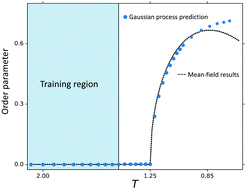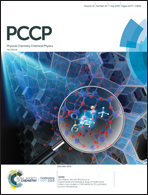Bayesian machine learning for quantum molecular dynamics
Abstract
This article discusses applications of Bayesian machine learning for quantum molecular dynamics. One particular formulation of quantum dynamics advocated here is in the form of a machine learning simulator of the Schrödinger equation. If combined with the Bayesian statistics, such a simulator allows one to obtain not only the quantum predictions but also the error bars of the dynamical results associated with uncertainties of inputs (such as the potential energy surface or non-adiabatic couplings) into the nuclear Schrödinger equation. Instead of viewing atoms as undergoing dynamics on a given potential energy surface, Bayesian machine learning allows one to formulate the problem as the Schrödinger equation with a non-parametric distribution of potential energy surfaces that becomes conditioned by the desired dynamical properties (such as the experimental measurements). Machine learning models of the Schrödinger equation solutions can identify the sensitivity of the dynamical properties to different parts of the potential surface, the collision energy, angular momentum, external field parameters and basis sets used for the calculations. This can be used to inform the design of efficient quantum dynamics calculations. Machine learning models can also be used to correlate rigorous results with approximate calculations, providing accurate interpolation of exact results. Finally, there is evidence that it is possible to build Bayesian machine learning models capable of physically extrapolating the solutions of the Schrödinger equation. This is particularly valuable as such models could complement common discovery tools to explore physical properties at Hamiltonian parameters not accessible by rigorous quantum calculations or experiments, and potentially be used to accelerate the numerical integration of the nuclear Schrödinger equation.

- This article is part of the themed collection: 2019 PCCP HOT Articles


 Please wait while we load your content...
Please wait while we load your content...